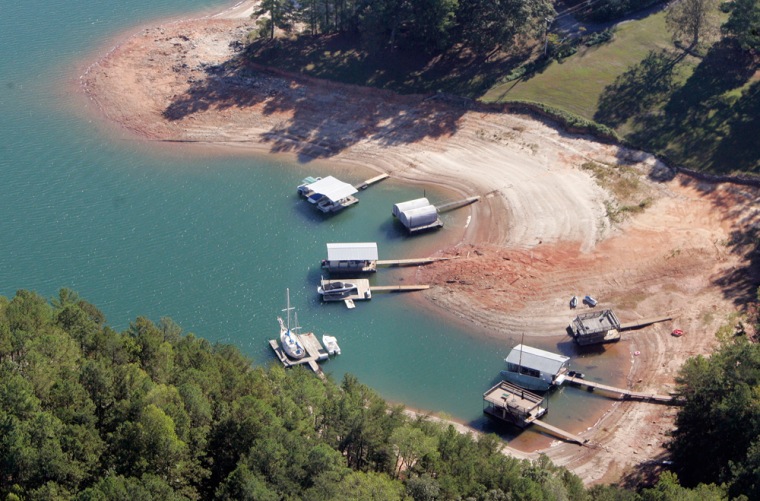Allowing Georgia to fight drought by slowing water flow into Florida would imperil commercial fishing along the Florida Panhandle, Gov. Charlie Crist argued in a letter to President Bush.
Crist urged Bush not to let Georgia move forward with a water-saving plan to slow the flow from reservoirs into rivers that eventually reach Florida.
Georgia Gov. Sonny Perdue has sued to try to force the U.S. Army Corps of Engineers to curb the release of water from North Georgia lakes into rivers that make their way to the Gulf of Mexico through the Chattahoochee and Apalachicola River basin. The corps controls water releases in the basin.
Georgia officials want to reduce the depletion of reservoir levels into early next year, so that no more water flows out than is coming in.
But doing so would hurt the Apalachicola River and Apalachicola Bay “resulting in a profound disruption of the socio-economic foundation in Florida’s Panhandle region,” Crist wrote in the letter dated Wednesday.
Florida, Alabama and Georgia have been in a dispute for years over how to manage the supply of water that flows down from North Georgia into the other two states on its way to the gulf. As metro Atlanta has grown the problem has grown too — with one of the major lakes in that area, Lake Lanier, serving as the main source of drinking water for the city.
Now, the problem is exacerbated by a drought that is gripping much of the Southeast, and is so bad in Georgia that officials ordered state agencies and public utilities to reduce usage, and have banned outdoor watering in most of the state.
Crist said Florida, Alabama and Georgia need to work together on more research into alternative water sources, noting that Florida has been studying desalinization and additional conservation programs.
Officials from the Corps of Engineers didn’t respond to a request for comment.
Forecasters have predicted a dry winter, bad news because it could take months of above-average rainfall to replenish the Apalachicola-Chattahoochee-Flint river basin.
New bill to help prevent droughts
Also Thursday, top Georgia lawmakers unveiled legislation that calls for building a network of new reservoirs in north Georgia to protect against future drought.
And North Carolina Gov. Mike Easley testified before a congressional committee on how the drought has hurt the state’s crops and livestock.
He appealed to lawmakers to send money to drought-ravaged farms in his state.
